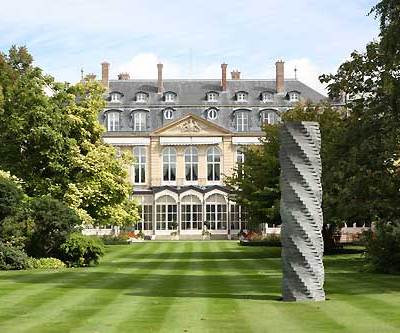Bernardo Bellotto (who worked under the name ‘Canaletto’) is the subject of a new exhibition at the Alte Pinakothek this month. We spoke to the curator Andreas Schumacher about the artist and the show.
Click here for a gallery of highlights from the exhibition
Can you tell us a bit about the exhibition?
The exhibition includes over 60 works by Bernardo Bellotto and several paintings by his uncle Giovanni Antonio Canal, loaned from all over the world. In addition to highlights from the artist’s oeuvre, numerous preparatory studies and etchings will give insights into the complex work process behind Bellotto’s seemingly realistic paintings, and demonstrate his skill as an etcher.
What makes this a distinctive show?
The exhibition highlights Bellotto’s large-format vedute of the princely capitals Dresden, Vienna, Munich and Warsaw, and the artist’s achievements in renewing the genre. Another special focus will be his landscape paintings and capricci or architectural fantasies, which attest to the artist’s remarkable virtuosity in these genres.
How did you come to curate this exhibition?
The exhibition was prompted by the extensive conservation works carried out on three large Munich panoramas – one of the city and two of Nymphenburg Palace. The restoration has brought out the outstanding quality of these three works and shed light on Bellotto’s unique manner of painting.
What is likely to be the highlight of the exhibition?
The three vedute Bellotto painted for the Elector of Bavaria in 1761 – they have been extensively restored and studied specifically for this exhibition. Further highlights, also recently restored, will be works from Dresden and Düsseldorf as well as from private collections.
And what’s been the most exciting personal discovery for you?
The artist’s pictorial language, which appears photographic to today’s viewers. Another intriguing aspect of Bellotto’s work is its ability to suggest that they are documentary ‘snapshots’, despite the fact that almost all of the perspectives are idealised and their details meticulously staged.
What’s the greatest challenge you’ve faced in preparing this exhibition?
Securing the loan of the large-format vedute that Bellotto painted for the courts, as well as the highly sensitive drawings.
How are you using the gallery space?
Together with the architects, we have developed an exhibition architecture that uses horizontally layered wooden beams in a dark-grey hue to structure the wall space and effectively emphasise the luminosity and perspectival effects of Bellotto’s paintings.
Which other works would you have liked to have included?
The view of Fortress Königstein from the National Gallery in Washington, but unfortunately we had to limit loans from overseas.
‘Canaletto: Bernardo Bellotto Paints Europe’ is at the Alte Pinakothek, Munich, until 18 January 2015.



